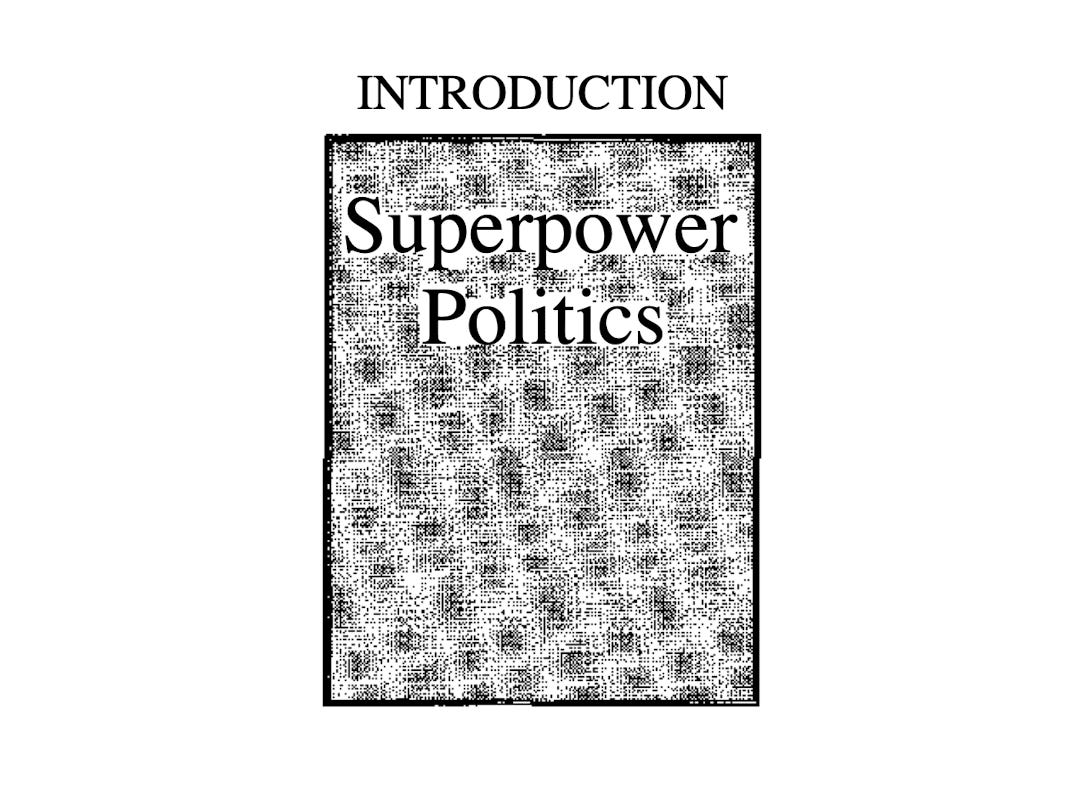America's brain bugs. What are they thinking?
In these strange times, when the ruling elite of this country is so casually gunning for war on two separate fronts, it can be clarifying to read what America’s imperial brain bugs in their own words. What are they thinking? What the hell are they doing?
You can get a lot of value out of Zbigniew Brzezinski and his The Grand Chessboard, a treatise on the America Empire and what the Empire needs to do to stay on top. I’ve been flipping through it and I gotta say that I appreciate how honest he is. It’s all surprisingly clear — written at a simple level that an American college freshman can understand.
The book’s concern can be summed up with one word: Eurasia. That’s the biggest threat to America. It’s amazing how obsessed he is with it.
He’s convinced that to maintain America’s greatness and to preserve stability and peace on earth, America needs to actively work to prevent any rival from emerging on the planet’s largest continent, an area that has previously been home to the most powerful empires — the Roman, the Mongol, the Chinese, the Soviet…
That’s it. That’s pretty much the whole book. You had your chance, Eurasians. It’s North Americanians’ turn now! Get out of the way peacefully or we’ll push you out.
Brzezinski is channelling a notion that’s deeply held by just about everyone here — from the simple to the elite. People believe that America must remain an undisputed global power — a super-duper-power — and that this is in the best interests of the world. It’s not just Americans who think this, either. I know of plenty of people in Russia who share this view.
He lays out his thinking in the intro to his book:
Ever since the continents started interacting politically, some five hundred years ago, Eurasia has been the center of world power. In different ways, at different times, the peoples Inhabiting Eurasia—though mostly those from its Western European periphery—penetrated and dominated the world's other regions as individual Eurasian states attained the special status and enjoyed the privileges of being the world's premier powers.
The last decade of the twentieth century has witnessed a tectonic shift in world affairs. For the first time ever, a non-Eurasian power has emerged not only as the key arbiter of Eurasian power relations but also as the world's paramount power. The defeat and collapse of the Soviet Union was the final step in the rapid ascendance of a Western Hemisphere power, the United States, as the sole and, indeed, the first truly global power.
Eurasia, however, retains its geopolitical importance. Not only is its western periphery—Europe—still the location of much of the world's political and economic power, but its eastern region— Asia—has lately become a vital center of economic growth and rising political influence. Hence, the issue of how a globally engaged. America copes with the complex Eurasian power relationships— and particularly whether it prevents the emergence of a dominant and antagonistic Eurasian power—remains central to America's capacity to exercise global primacy.
It follows that—in addition to cultivating the various novel dimensions of power (technology, communications, information, as well as trade and finance)—American foreign policy must remain concerned with the geopolitical dimension and must employ its influence in Eurasia in a manner that creates a stable continental equilibrium, with the United States as the political arbiter.
Eurasia is thus the chessboard on which the struggle for global primacy continues to be played, and that struggle involves geostrategy—the strategic management of geopolitical interests. It is noteworthy that as recently as 1940 two aspirants to global power, Adolf Hitler and Joseph Stalin, agreed explicitly (in the secret negotiations of November of that year) that America should be excluded from Eurasia. Each realized that the injection of American power into Eurasia would preclude his ambitions regarding global domination. Each shared the assumption that Eurasia is the center of the world and that he who controls Eurasia controls the world. A half century later, the issue has been redefined: will America's primacy in Eurasia endure, and to what ends might it be applied?
The ultimate objective of American policy should be benign and visionary: to shape a truly cooperative global community, in keeping with long-range trends and with the fundamental interests of humankind. But in the meantime, it is imperative that no Eurasian challenger emerges, capable of dominating Eurasia and thus also of challenging America. The formulation of a comprehensive and integrated Eurasian geostrategy is therefore the purpose of this hook.
Zbigniew Brzezinski Washington, DC. April 1997
Ah yes, “fundamental interests of humankind.” Ha, right. Just look at how the planet’s done in the last few decades of American Power.
I gotta say that I’m very ambivalent about this whole American clash of civilizations thing. If you look at it like a historian studying ancient cultures and look beyond the wars and the clash for territory and economic power, it’s clear that on a deeper level the game’s already over. The enemies that America is so concerned with cutting back down down to size — China and Russia — have already adopted the American Way of Life. Whatever the superficial differences, every single one of these societies is a hyper-industrial power, predicated on capitalism and endless trash consumerism and endless growth. On a fundamental level all these societies are very similar and they all go against the interests of humankind and against the interests of all life on earth. So even if the America Empire starts to wane — which it probably will sooner or later — its toxic spiritual influence will remain.
—Yasha





Geen opmerkingen:
Een reactie posten